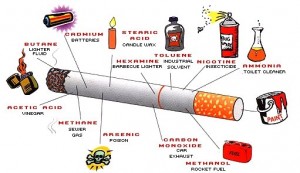Future Regulation of Electronic Cigarettes
Smoking regularly will shorten your life and increase your chances of contracting cancer. Smokers of cigarettes have a far greater likelihood of dying from cancer at a younger age than non-smokers. Large tobacco manufacturers wield a lot of political power within governments throughout the world.
Smoking and the Law
It would cost the UK government over £12 billion in lost tobacco duty annually if they succeed in getting all the smokers to quit. Alcohol is the only other product that comes close to being as harmful and yet also escapes sanction. There has been some negative press surrounding electronic cigarettes and vaporizers.
In the UK, less than 200 people die each year in work related accidents, and yet we have extensive health and safety legislation to protect them, yet 100,000 people die annually from smoking related diseases but they are still legal.
If everyone stopped smoking, the government would have to raise £12.1 billion from other taxes to balance its books. It seems that the government don’t mind dangerous products as long as they make a profit from them.
The Regulation of E-Cigarettes
The income lost as smokers switch to vaporizer devices will need to be found somewhere and so regulation and taxation of e-liquid looks likely. Regulation will lead to price rises as the large conglomerates dominate the industry.
If the government regulates e-cigarettes, it will be to protect their finances rather than to protect the public. Regulation will have more to do with taxation than any perceived health concerns.
Opponents to Electronic Cigarettes
Two powerful industries, the tobacco and the smoking cessation sectors are going to be worst hit by increased e-cigarette use. Even though nicotine gum and patches deliver nicotine, many smokers prefer the satisfying nicotine hit that they receive from inhaling an electronic cigarette or vaporizer.
While the tobacco industry want to prevent e-cigarettes from taking their customers, it is difficult for them to argue against them on health grounds. There are rumours within the industry that tobacco lobbyists are supporting the smoking cessation industries campaign against electronic devices.
Potential Government Legislation
When the main concern of legislators is how to preserve their income from the duty on cigarettes, rather than the health of the general population, it makes you wonder whose best interests our politicians have at heart? Getting the level of duty right on e-liquid is going to be quite difficult for the government because if they try to charge too much, people will start to make their own, which is quite straightforward to do.
Whether people will end up making their own e-liquids is sufficient numbers to affect the government’s finances remains to be seen. Smokers in general are prepared to try cheaper cigarettes, regardless of their source and whether they are “legitimate” or not. In the coming months we will find out what the extent of future regulation for e-cigarettes will look like. If the Government can find a way to tax e-juice then apart from reducing the cost savings, electronic cigarettes are here to stay.
Despite being a much safer alternative to smoking tobacco, electronic vapour devices can’t be properly taxed then governments around the world are more likely to ban then instead. It is very probable that electronic smoking devices will be regulated to some degree in the near future. Regulation is necessary because e-cigarettes have the potential to significantly reduce the tobacco tax revenue the Government receives annually.
Free Quit Smoking Guide http://www.how-to-give-up-smoking.com
It seems increasingly unlikely that electronic cigarettes will avoid all regulation because their growing popularity will keep eating into the governments tobacco revenues, forcing the treasury to introduce taxes on vaporizer devices to balance their books.
